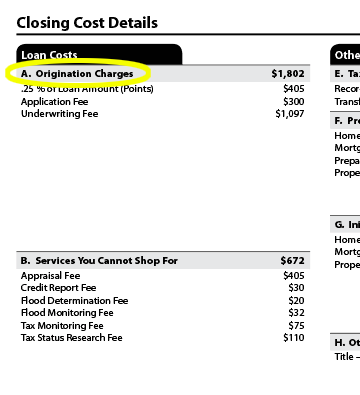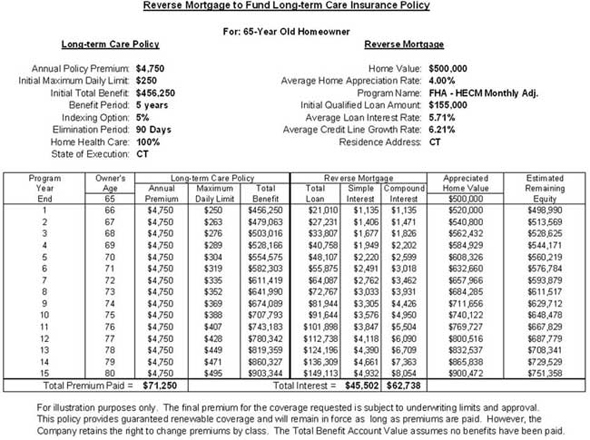The reverse home mortgage balance can be paid back at any time without penalty. You can pick to either pay back the loan willingly or defer interest up until you later sell your home. When the loan balance will be paid in full any remaining equity will belong to your heirs or estate. Yes. A foreclosure is a legal process where the owner of your reverse home loan obtains ownership of your home. Even if you have actually received a foreclosure notice, you might still have the ability to prevent foreclosure by pursuing among the options kept in mind above. Your reverse home loan company (also described as your "servicer") will ask you to accredit on a yearly basis that you are residing in the residential or commercial property and keeping the residential or commercial property.
Nevertheless, these expenses are your responsibility so make sure you have actually set aside adequate cash to pay for them and make certain to pay them on time. Not meeting the conditions of your reverse home loan might put your loan in default. This implies the mortgage company can demand the reverse home loan balance be paid completely and might foreclose and offer the residential or commercial property.
However, if you move or offer the property, the loan ends up being due and should be settled. In addition, when the last making it through customer dies, the loan becomes due and payable. Yes. Your estate or designated beneficiaries might maintain the residential or commercial property and please the reverse home loan debt by paying the lower of the home mortgage balance or 95% of the then-current assessed value of the house.
No debt is passed along to the estate or your beneficiaries. Yes, if you have actually offered your servicer with a signed third-party authorization file authorizing them to do so. No, reverse home mortgages do not allow co-borrowers to be included after origination. Your reverse home mortgage servicer may have resources readily available to help you.
Your therapist will help you evaluate your financial scenario and work with your home mortgage servicer. In addition, your counselor will have the ability to refer you to other resources that may help you in stabilizing your budget and maintaining your house. Ask your reverse mortgage servicer to put you in touch with a HUD-approved therapy company if you're interested in consulting with a real estate counselor.
The 25-Second Trick For Who Took Over Taylor Bean And Whitaker Mortgages

Department of Real Estate and Urban Development (HUD) Office of the Inspector General Hotline 800-347-3735 or e-mail: [e-mail safeguarded] Federal Real Estate Financing Company Office of the Inspector General Hotline 800-793-7724 or on the Internet at: www.fhfaoig.gov/ReportFraud Even if you are in default, options may still be available. As a first action, call your reverse home mortgage servicer (the business servicing your reverse home mortgage) and describe your scenario.
You can also contact a HUD-approved counseling agency for additional information about your scenario and choices to wesley financial group nashville help you prevent foreclosure. Ask your reverse home loan servicer to put you in touch with a HUD-approved therapy company if you're interested in consulting with a housing counselor. It still might not be far too late.
If you can't settle the reverse home mortgage balance, you might be qualified for a Brief Sale or http://zionkvkf952.trexgame.net/h1-style-clear-both-id-content-section-0-see-this-report-on-what-is-an-underwriter-in-mortgages-h1 Deed-in-Lieu of Foreclosure (when did 30 year mortgages start).
A reverse home loan is a mortgage loan, usually protected by a residential property, that allows the debtor to access the unencumbered worth of the residential or commercial property. The loans are usually promoted to older property owners and usually do not need month-to-month home mortgage payments. Customers are still accountable for real estate tax and property owner's insurance.

Since there are no necessary mortgage payments on a reverse mortgage, the interest is added to the loan balance monthly. The rising loan balance can eventually grow to surpass the worth of the house, especially in times of declining house worths or if the customer continues to live in the home for numerous years.
Getting My What Fico Scores Are Used For Mortgages To Work
In the United States, the FHA-insured HECM (home equity conversion home loan) aka reverse mortgage, is a non-recourse loan. In basic terms, the customers are not responsible to repay any loan balance that exceeds the net-sales profits of their house. For instance, if the last debtor left the home and the loan balance on their FHA-insured reverse mortgage was $125,000, and the home cost $100,000, neither the customer nor their beneficiaries would be responsible for the $25,000 on the reverse mortgage loan that surpassed the value of their home.
A reverse mortgage can not go upside down. The expense of the FHA mortgage insurance coverage is a one-time charge of 2% of the appraised worth of the home, and then an annual cost of 0.5% of the outstanding loan balance. Particular rules for reverse mortgage transactions differ depending on the laws of the jurisdiction.
Some economists argue that reverse mortgages may benefit the elderly by smoothing out their earnings and consumption patterns over time. However, regulative authorities, such as the Consumer Financial Defense Bureau, argue that reverse home loans are "intricate products and challenging for customers to comprehend", specifically in light of "misleading marketing", low-grade counseling, and "threat of fraud and other scams".
In Canada, the customer should seek independent legal suggestions before being authorized for a reverse home mortgage. In 2014, a "relatively high number" of the U.S. reverse mortgage debtors about 12% defaulted on "their home taxes or house owners insurance coverage". In the United States, reverse mortgage customers can face foreclosure if they do not keep their houses or maintain to date on homeowner's insurance coverage and residential or commercial property taxes.
Under the Accountable Lending Laws the National Customer Credit Defense Act was amended in 2012 to incorporate a high level of regulation for reverse home loan. Reverse home loans are also controlled by the Australian Securities and Investments Commission (ASIC) requiring high compliance and disclosure from lending institutions and advisors to all borrowers.
10 Simple Techniques For What Is Wrong With Reverse Mortgages
Anyone who desires to take part in credit activities (consisting of lending institutions, lessors and brokers) must be licensed with ASIC or be a representative of somebody timeshare attorney near me who is licensed (that is, they must either have their own licence or come under the umbrella of another licensee as an authorised credit representative or employee) (ASIC) Eligibility requirements differ by loan provider.
Reverse mortgages in Australia can be as high as 50% of the home's value. The specific amount of cash available (loan size) is determined by several elements: the customer's age, with a greater amount offered at a greater age present interest rates the property's place program minimum and optimum; for instance, the loan might be constrained to a minimum of $10,000 and a maximum of between $250,000 and $1,000,000 depending upon the lender.
These costs are frequently rolled into the loan itself and therefore compound with the principal. Normal costs for the reverse mortgage include: an application fee (establishment charge) = in between $0 and $950 stamp task, home loan registration costs, and other government charges = differ with location The interest rate on the reverse home loan differs.